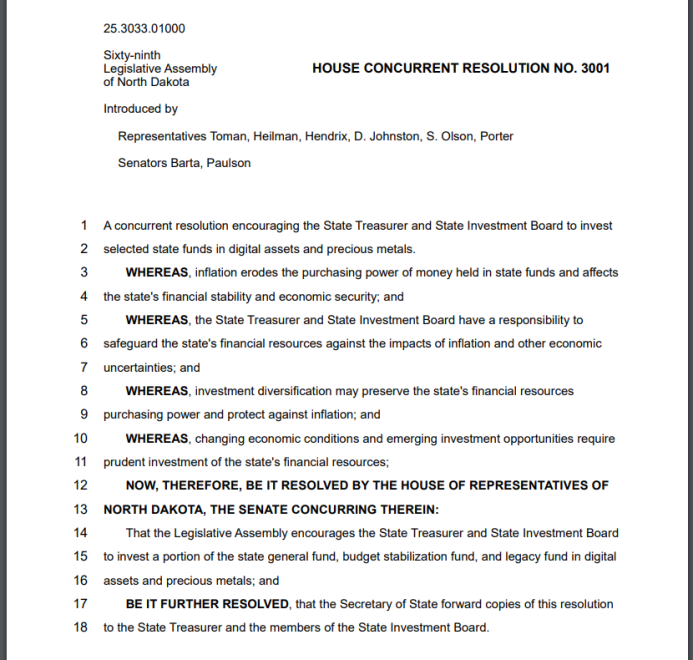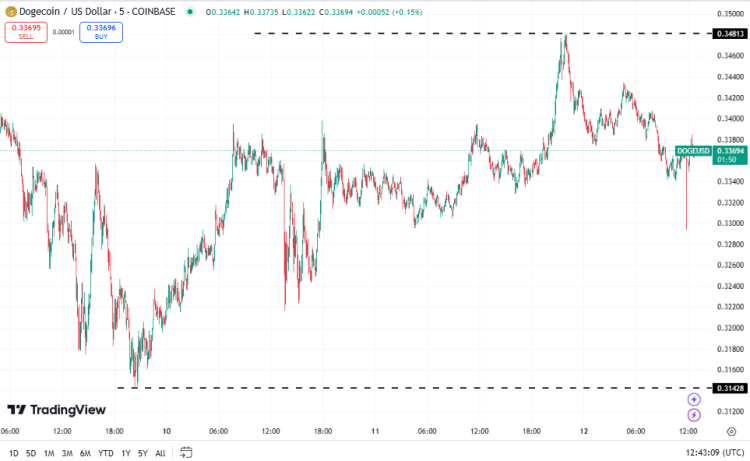The hills once provided a check on the overreaches of state-making. Today, Bitcoin provides that check.
This is an opinion editorial by Captain Sidd, a finance writer and explorer of Bitcoin culture.
I’ve spent most of the last three years living in the mountainous region of Northern Thailand. Nestled in the hills all around the valleys live “hill tribes” with names like the Akha, Hmong and Lahu. Each has their own traditional dress, unique language and local foods. To many of us living in the valley cities — especially foreigners like myself from far-flung places — these hill tribes seem left behind by the slow march of civilizational progress. They are often described as “our living ancestors.” Euphemistically referred to as disadvantaged, many live in bamboo huts and lack access to education, electricity and many trappings of modern life the rest of us rely on every day.

At a distance, these impressions make sense. Once I had a few substantive conversations with these people, however, my understanding shifted. I recognized my implicit association between “civilized” and the gleaming cities of modern nation-states might be completely wrong. I witnessed incredible love, community and wealth in the hills, in amounts I never imagined prior.
I wondered what I, and many others, might be missing about these people: their histories, societies and cultural practices. What might a new understanding of the hill tribes reflect about modern society?
A study of the hill tribes of Southeast Asia titled “The Art Of Not Being Governed” provided a fresh take. The author, James C. Scott, posits that the hill tribes were not “left behind” by the valley states but instead composed of refugees from the negative consequences of state-making down in the valleys: bondage, tribute, slavery, war epidemics and more. The rough terrain in the hills served as a natural impediment to absorption by the state.
“[States] have encouraged, whenever possible, cash, monocropping, plantation-style agriculture in place of the more biodiverse forms of cultivation that prevailed earlier.” — James C. Scott, “The Art Of Not Being Governed”
The author goes into further detail on how the factors necessary for states to arise necessarily brought negative consequences — for that analysis you will need to read the book!
The Interplay Of Hills And States
When states arose at times in the valleys, they provided benefits like security in exchange for drawbacks: occasional famine, epidemics, bondage, wars and more. These opposing forces motivated a voluntary movement of people in and out of the hills over the course of history. This movement put a check on the growth and power of states.

History as taught in state-sponsored classrooms all around the world obscures this ebb and flow between states and hinterlands, putting forward a one-way march of civilizational progress. In this history, bureaucrats gradually envelope the world in the warm embrace of the nation-state, bringing peace and security to all. This teaching fails to highlight that “for much of history, living within or outside the state — or in an intermediate zone — was a choice, one that might be revised as the circumstances warranted,” as Scott writes. The ability of people to opt-out of course varied from time to time across landscapes. According to the author’s research, the Southeast Asian massif provided fertile ground for opting out of valley states up until the 20th century.

“The attempt to fully incorporate [hill peoples] has been culturally styled as development, economic progress, literacy, and social integration. In practice, it has meant something else. The objective has been less to make them productive than to ensure that their economic activity was legible, taxable, assessable, and confiscatable or, failing that, to replace it with forms of production that were.” — James C. Scott, “The Art Of Not Being Governed”&
The diverse and impermanent farming and cultural practices of many modern hill people looks to us raised in nation-states as a result of lack of access to education and opportunity. However, they may represent a way to “evade both state capture and state formation" Scott writes. This resonates with my (albeit very limited) experiences with the people of the hills. They are aware of the outside world and sometimes travel to work in the city centers. Yet few leave the hills for good, choosing instead to come back to their communities even after learning about the world and immersing themselves in city life.
Modern Technology Eliminates The Hills
The ability of the hills to check state power depends on a difficulty in projecting power — physically, politically and culturally — across far distances and rough terrain. The advent of distance-crushing technologies such as durable asphalt roads, railways, fossil fuels, radio, television and the internet changed this calculus drastically, eliminating the hills as a viable refuge from state power.

Physically, technologies such as roads and vehicles make it easier for state surveyors and tax collectors to reach far-flung villages to collect tax on land and production. Culturally, technologies such as radio and television allow the state to project messages over the air to distant pockets of people, repeating the glory and ideals of the state to anyone who will hear them. Financial tools can also contribute to a type of state control: by extending copious credit and encouraging individuals to overextend themselves into agricultural equipment, upgraded cars or big homes, debt adds up creating new classes of indentured servants liable to banks and the state.
“Physical flight, the bedrock of popular freedom, was the principal check on state power.” — James C. Scott, “The Art Of Not Being Governed”
These changes together result in an elimination of the hills as a refuge from state power, and therefore as a check on it. Moving to remote physical spaces no longer serves as a viable escape from taxation or bondage, as state power extends over almost every physical corner of today’s Earth — and overwhelmingly the areas which support human life.
However, the hills as a check on state power also relies on states needing bodies to perform work and fight in wars. Modern nation-states have less need for more human beings than those of antiquity: something else now plays a major role in state power.
The Source Of Nation-State Power
Ancient nation-states derived much of their power from their control of humans and arable land. Therefore, the hills as physical refuge provided an escape valve and check on the power of nation states — one less farmer and tended piece of land directly impacted the power and influence of the court.
Today, capital plays a much larger role than humans and arable land in the accumulation and maintenance of state power. One diesel engine can do the work of hundreds of humans or work animals and a drone can strike more targets at further distances than a squad of soldiers. In my interpretation here, capital means anything from money to machinery to creativity, all of which multiply the effectiveness of humans and land in producing the riches that sustain a state.

Some might object that in many cases, the state does not own any of this capital — so how does this capital play a role in state power? Who owns a piece of capital matters less than the ability of the state to seize or tax that capital in times of need. Many modern states allow their subjects to own their lands and productive capital, with the threat of jail time should subjects fail to pay any taxes levied. When state subjects lack mechanisms to effectively resist the state or opt out with their capital intact, the state has them over a barrel.
So while the hills and physical spaces no longer present a check on state power, the land and humans that once escaped to the hills have little to do with the power of modern states. What would present a significant check on modern state power is a hill or hinterland for capital.
The Hills For Capital
A check on the power of modern nation-states would need to allow individuals to move their capital out of the reaches of the state, just as people once fled to the hills to escape the negative consequences of ancient nation-states. What would a hinterland for capital look like?
A hinterland for capital would need to satisfy a few criteria:
- Portable: The form your capital takes must be easy to take with you.
- Divisible: If you intend to live off your capital, you need to be able to part with pieces of it at a time to live off.
- Tax- and Seizure-Resistant: The form your capital takes must resist taxation and potentially seizure by states.
- Value Storing: The form your capital takes must store its value over long periods of time — it must be reliably scarce yet widely desirable. Without this, you risk losing your capital even if the state cannot reach it.
Let’s make this example a bit more personal and say you have a large sum of savings in your local currency. However, you disagree deeply with the government you live under, and do not feel as if your voice matters in the halls of your state. Maybe you disagree with funding a police force that wantonly kills people who look like you or you believe well-connected corporations get the better end of the deal, or you simply do not want to keep sweating away in an economic system where prices grow faster than wages.
You want to send your capital to the hills, opting out of state control. Where do you put your capital to keep it out of the state’s hands?

Currency is your first option. Currency is highly portable as well as divisible, making it easy to travel with and spend down incrementally. However, currency suffers from its physicality: a motivated state can seize it from you in person or more easily through your bank should you choose to store your savings with one. Even worse, currencies the world over are not scarce commodities in any sense: central banks have the ability to increase their supply with the stroke of a key, and they do this with reckless abandon. Each new unit of currency printed debases the value of the currency you hold. Even if you manage to hide your savings from the state, they can debase its value to zero.

Natural resources and foodstuffs seem like a practical option for storing capital. You could stockpile fuels like coal and oil, invest in solar panels and stash prepped food in an RV or bunker — prepper style. While you may be able to live off-grid in the event of a societal collapse, you are hardly opting out of state control. The prepper example here differs little from the traditional “run to the hills” escape from the oppressive state, which modern technology rendered ineffective.

Real estate, financial instruments and capital investments in a business are another option. These each store value fairly well, at least historically, and can even generate you a positive cash flow should you pick the right investments. However, they suffer from a lack of portability, divisibility and resistance to tax and seizure. Real estate is a sitting duck, registered with state authorities and impossible to move. Financial instruments today almost always live within the databases of third parties liable and loyal to state orders far more than you, the investor. Businesses usually have a physical footprint and deep roots in the established legal and financial systems surveyed by states, so capital investments there will hardly resist tax and seizure.

Gold may look like the obvious candidate; for centuries, humans have valued this shiny rock and used it in global trade. Where gold shines in portability and value storage, it dulls against the tools of the modern state for identification and appropriation of physical goods. You may be able to hide gold on your person, but any border guard with half an eye open will surely fleece it.
What if you could store your capital in a commodity that moved at the speed of light, divided into infinitesimally small quantities with ease, stored in your brain and displayed its scarcity with mathematical certainty? This would absolutely smash our alternative stores for capital on the dimensions of portability, divisibility, tax- and seizure-resistance, and ability to store value over time. This would provide a revolutionary check on the growth of state power and a strong refuge for free people and their capital.
Discovering The Hills For Capital
No physical form of capital gives us strong assurances against punitive taxation or state seizure, given the power of modern states over the physical domain. The hills for capital will need to be digital. However, anyone can copy and paste a digital “good” and take it for themselves — which is not what we desire when storing capital for any amount of time.
Digital systems which enforce scarcity — like modern bank accounts — suffer from a different problem: control. Scarcity requires administrators with special permissions to update and edit the system. Participants in that system must trust administrators not to change the rules or affect the scarcity within the system. What we need is a scarce digital good with assurances that no person or state will ever control the system.
What digital systems do give us is portability, divisibility and the ability to move without connection to our physical bodies and state-registered identities? What systems grant those benefits along with provable scarcity?
There is only one digital good we know of that satisfies all the criteria to be the hills for capital: Bitcoin. Bitcoin provides benefits unique to a digital commodity: instant transfer anywhere in the world, deep divisibility, incredible privacy and provable scarcity. A memorized seed phrase is out of reach from even the most prying strip search, and a well-handled bitcoin UTXO following best privacy practices bears no relationship to any entities registered with or surveilled by a state. The Bitcoin protocol ensures scarcity, giving us simple rules for a finite commodity with strong assurances against any state or ruler co-opting the system for their own benefit.

Bitcoin gives any individual the power to take their capital to the hinterlands, out of state control, in a time when states have few checks on their power and many tools for surveillance, taxation, wealth appropriation and war at their fingertips. Providing a hinterland for capital means Bitcoin represents a new check on the excesses of state power, in a time when former options for exit are quickly disappearing.
Whether you choose to stay within a state or run to the hills, Bitcoin is an ever-present check on state power.
This is a guest post by Captain Sidd. Opinions expressed are entirely their own and do not necessarily reflect those of BTC Inc or Bitcoin Magazine.

You can get bonuses upto $100 FREE BONUS when you:
💰 Install these recommended apps:
💲 SocialGood - 100% Crypto Back on Everyday Shopping
💲 xPortal - The DeFi For The Next Billion
💲 CryptoTab Browser - Lightweight, fast, and ready to mine!
💰 Register on these recommended exchanges:
🟡 Binance🟡 Bitfinex🟡 Bitmart🟡 Bittrex🟡 Bitget
🟡 CoinEx🟡 Crypto.com🟡 Gate.io🟡 Huobi🟡 Kucoin.




















Comments